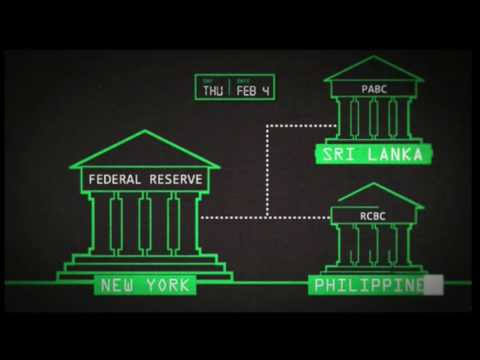Can my bank account be hacked
Can my bank account be hacked?
Could your bank account be hacked? Almost certainly! It depends on what YOU are doing to prevent it.
If you mean could someone break into your personal account and take your money, I would say that is possible more with phishing, social engineering, computer malware, hacking other accounts where you have stored your passwords, etc, and a lot of that depends on you and your habits.
For instance we hear all the time about companies, or even the US government losing customer data, including names, addresses, social security information, credit card information, logins and even passwords. This information is traded, sold and bought, aggregated and compiled by hackers in an attempt to get enough information on people to try to break into other accounts for those people and get more information. Even Yahoo was hacked, as was the Democratic National Committee using information and techniques stolen from other places. The majority of us are now vulnerable because of this.
Where am I going with all this? My point is not that banks themselves are going to be attacked, but rather that each of US is a weak point. I am not saying that some bank somewhere could never be hacked but rather, that it is a lot less likely to happen to a bank than it is for YOU to be hacked.
Banks have all sorts of safeguards in place to prevent and deter attacks, as you might expect. I am under a professional obligation not to share any details on that point, but I can also assure you that hackers are much more likely to gain access to your account because of your own habits with how you handle your personal data and security than by hacking a bank directly.
Could your bank account be hacked? Sure, but it is more likely to happen from your own fallibilities than failures in the various ways the banks are trying to protect your accounts and information.
We all have a lot of responsibility with safeguarding our own information. We all need to be better about things like not reusing passwords, not keeping personal information like tax records or password lists in our email accounts. Making sure our computers and phones are kept up to date with all the latest OS patches and malware protection. Using strong passwords, not reusing passwords, and changing our passwords often are probably the easiest and most important things you can do to protect yourself. That way even if hackers have compiled a list of passwords you've used on sites they have compromised, they don't have anything they can use somewhere else, like your bank.
A few of the most important, easy, and effective things you can do are:
1. Use a password manager to allow you to have different strong passwords on every account and change them often. There are some good free or reasonably priced options out there for this with different features.
2. Use 2 or 3 factor authentication on every account that offers it. Most banks offer this. It may mean you get a text every time your account is logged into, or you verify your 'secret picture' or your first pet's name, or enter a code that is sent to your phone when you log in.
3. ALLOW your bank's phone app to use location on your phone. Many banks are starting to use your phone's location as a another way to verify YOU are likely actually present when your cards are being used. (If nothing else this might make it less likely to get your card locked for possible fraud because you are on vacation and trying to pay for your hotel in Florida while they think you are at home in Texas because you bought a cup of coffee there last night on your way out of town.)
1. Use a password manager to allow you to have different strong passwords on every account and change them often. There are some good free or reasonably priced options out there for this with different features.
2. Use 2 or 3 factor authentication on every account that offers it. Most banks offer this. It may mean you get a text every time your account is logged into, or you verify your 'secret picture' or your first pet's name, or enter a code that is sent to your phone when you log in.
3. ALLOW your bank's phone app to use location on your phone. Many banks are starting to use your phone's location as a another way to verify YOU are likely actually present when your cards are being used. (If nothing else this might make it less likely to get your card locked for possible fraud because you are on vacation and trying to pay for your hotel in Florida while they think you are at home in Texas because you bought a cup of coffee there last night on your way out of town.)


Comments
Post a Comment